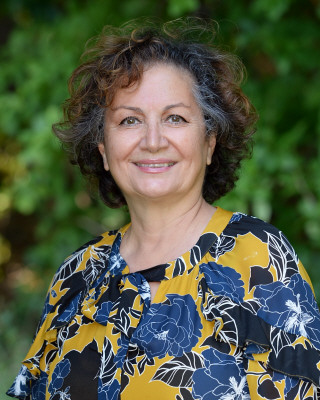
Jun 2, 2021 | Emma Drzala, Faculty Departures
By Emma Drzala (V)
After working at Pingry for thirteen years, Mrs. Homa Watts has announced that she will be stepping down from her position as a second grade teacher. Throughout her time at Pingry, Mrs. Watts has taught kindergarten, first grade, and second grade.
Mrs. Watts earned her BS from Tehran University in Iran, and her Masters Degree from Western Illinois University. After completing her education, Mrs. Watts taught at both the Sundance School in North Plainfield and the Kent Place School in Summit before teaching at Pingry starting in 2006. In 2013, Mrs. Watts opted to take two years off to live in the United Arab Emirates. She continued her teaching career in the UAE at a local school for the first year and privately tutored for the second year. She returned to Pingry in 2015.
Mrs. Watts has greatly enjoyed her time teaching at Pingry. She says that she has “never regretted making the choice of being a teacher. [She] considers teaching an honorable profession” and “would like to help new teachers to become even better teachers than they already are. Mentoring young teachers is not only [her] passion, it is [her] responsibility.” Mrs. Watts looks forward to spending time with her grandchildren and traveling throughout Europe and Canada with her husband and Pingry music teacher, Dr. Kenneth Watts. Looking back at her time at Pingry, Mrs. Watts cherishes the memories she has made with her students and colleagues. One of her most notable memories was when a family of foxes declared the area under a slide as their own, and consequently, students were not allowed in the playground for nearly two months. She believes that instances like these show how seemingly insignificant moments make the biggest impact.
Mrs. Watts’ retirement is a bittersweet occasion for many of us at Pingry. She is a great teacher who leaves behind a monumental legacy, and she has touched the lives of a generation of students for over fifteen years. As a former student of hers, I look forward to seeing her again and hearing about all of her future endeavors. We thank you for your dedication to the students at Pingry and we will miss you greatly, Mrs. Watts!
Jun 2, 2021 | Emma Drzala, Faculty Departures
By Emma Drzala (V)
As the 2020-2021 school year comes to a close, Ms. Patty Finn has announced her retirement from the Lower School. After teaching at Pingry for thirty-seven years, Ms. Finn describes the Short Hills music room as her “happy place.” She has worked with students ranging from Kindergarten to Grade 3, as well as with Grade 4 students learning the flute and Grade 5 handbell players. During her years at Pingry, Ms. Finn has worked with numerous colleagues in the Arts Department, including fellow lower school music teachers Mr. Thomas Berdos and Ms. Emma Liu, and high school teachers Dr. Andrew Moore and Mr. Jay Winston.
Prior to working at Pingry, Ms. Finn studied at both Douglass College and Rutgers Graduate School for a degree in musical education. Her studies were augmented by multiple Orff workshops, a session at the College of Piping on Prince Edward Island, and additional classes at the Gaelic College in Nova Scotia. These additional courses serve as proof to her students that a person’s education is not limited to just college and graduate school: there is always more to learn. This past year, Ms. Finn has played the flute in her church, as well as continuing to teach music in her local library. She has found herself giving private lessons to those looking to explore and expand their musical capabilities.
Looking back, Ms. Finn found it hard to choose a single moment that defined her time at Pingry, but she said she will always think back fondly to the annual performance of “This Day of Peace” during the holiday concert. Ms. Finn explained her love for this performance, expressing that “there is nothing better than the voices of 300 children raised in song.” She will forever cherish the relationships she forged with the students and faculty at Pingry and considers herself fortunate to “have spent [her] life making music.” As a former student of Ms. Finn’s, I will say that she will be greatly missed as a valued member of the Pingry community, and we all wish her well in her future endeavors!
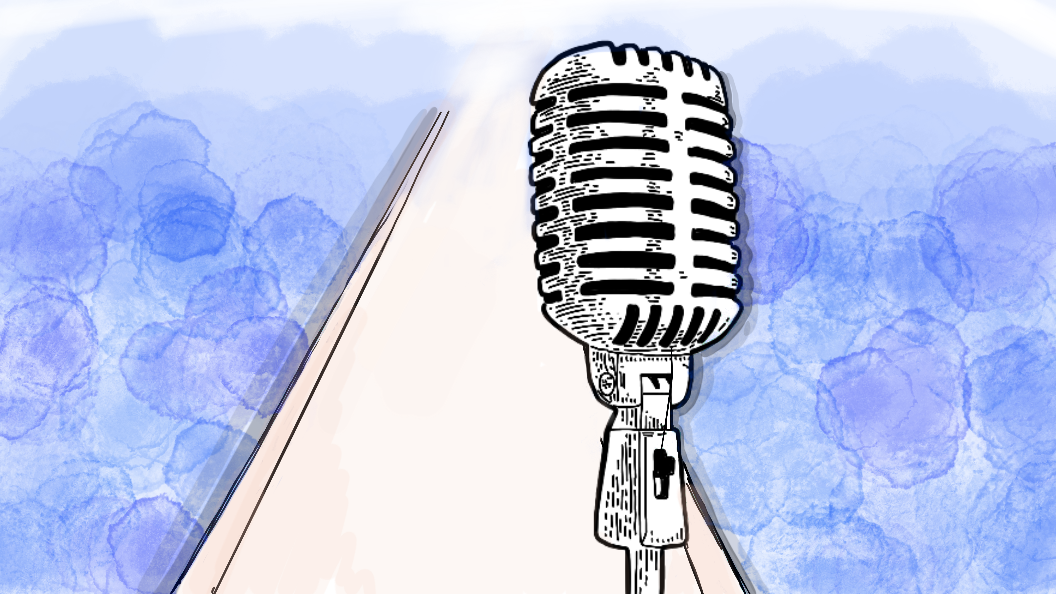
Feb 19, 2021 | Emma Drzala, Front Page News, School News
By Emma Drzala (V)
As we approach the end of the winter trimester, the Pingry community finds that it is once again time for the annual Robert H. LeBow ‘58 Oratorical Competition. The contest was founded by the Pingry Class of 1958 (LeBow’s graduating class) and William Hetfield (‘58), in honor of their classmate, Robert LeBow. Featuring six student speakers with four-and-a-half to six-and-a-half minute speeches, the assembly is consistently deemed a favorite among the school community. This year, the competition was organized by Ms. Judy Lebowitz, and was open to students from both the sophomore and junior classes. From a pool of 26 students in the preliminary round, the top six advanced to the finals: Martine Bigos (V), Elspeth Campbell (V), Caleb Park (V), Milenka Men (IV), Sophia Lewis (V), and Israel Billups (V). They will be judged by a diverse panel of teachers and administrators, as well as the past two winners of the LeBow Competition: Cal Mahoney (VI) and Noah Bergam (VI).
Of the contestants, Martine Bigos was the only one who qualified for the finals last year. This year, she wrote a speech entitled “All That’s Left.” In it, Bigos expresses her concern about our actions as high school students, and how everything we do seems to be for an end goal, rather than for our enjoyment or the betterment of society. She also discusses dishonesty in today’s world, and how the majority of students are looking for ways to “win”—whether that be getting into college, or winning a competition—rather than truly caring about what they are doing. Rather than writing about something that she did not have a passion for just because she felt the judges would appreciate it, Bigos decided to write about the need for winning in society today. There is a beauty in her speech that cannot be replicated, and Pingry students will surely be able to relate to the message of it.
Elspeth Campbell (V) wrote a speech entitled “We, the Politicians.” Her idea came about after reading a compendium of internet conspiracy theories in the New York Times. Confounded by the juxtaposition between baseless theories and factual journalism, Campbell began writing a speech about the dangerous effects of factionalism on social media. She initially believed that the exponents of such ideologies were only harming themselves. However, she soon realized that her speech seemed both prescient and naïve, and was enlightened on how misinformation is able to prevail so easily today. Campbell confronted the obvious hypocrisy of her argument wondering, “How could I, someone who was too nervous to speak in class, let alone share my political beliefs, encourage others to participate in political discussions?” Her speech became an exercise in introspection, designed to empower both herself and her peers.
The next finalist is Caleb Park (IV), with “My Dark, Beautiful, Twisted Isolation.” Park’s speech analyzes isolation during quarantine; he believes that sometimes, isolation can lead to a masterpiece, citing both Kanye West and Ludwig van Beethoven as examples of this theory. He mentions that although on a surface level, isolation appears to be a pain to us, but it actually gave us an opportunity to explore ourselves and to make time for personal growth and realization. Park also talks about his first encounter with isolation and that is where his inspiration for his speech came about. His speech is captivating in that everyone can think back to their quarantine experience and wonder if a “masterpiece” came from it.
Milenka Men’s (IV) “We’ve Kept the Mountains and Lost the Grass” is a speech about social interaction during COVID-19, and how quarantine has affected our social psyche as a community. She describes her speech as something that has “evolved into a discussion of how the structure of our social lives has been altered as a whole.” Her inspiration behind the speech came from her own personal experience with quarantine; when quarantine began, Men initially enjoyed the break and the time it gave to her. She was able to explore herself, which allowed her to realize her introverted nature. Similar to Caleb Park, Milenka takes on the difficult subject of quarantine and what it meant to her.
Next is Sophia Lewis (V) with “Self Care [sic] Isn’t Caring for Me Anymore.” Lewis’s speech discusses her frustration with self-care. She felt that recently, self-care has dwindled down to becoming superficial, which she believes is unacceptable. In her speech, she discusses self-care and what it means to her, as well as how it has come to affect her.
The final speech is “The Velocity of Fear.” Written by Izzy Billups (V), the speech is centered around the magnitude of fear in society today. Billups discusses how fear is what leads to the destruction of embracing personal thoughts and ideals. She aims to communicate that we should not fear being different, but rather embrace the idea of breaking out of the box that society has set up for us. Finally, she notes that no two people are the same, so in turn, we as a community should not conform to the pressures of society. Billups drew inspiration from a mere conversation with her sister, proving that universal truths can come to us at any moment. After realizing that both she and her sister have been making decisions based on how they would be perceived in society, Izzy decided to write a speech to combat the mentality of fear controlling so many people, thereby naming it “The Velocity of Fear.”
The competition will be held on February 19 in Hauser Auditorium. Good luck, finalists!

Feb 16, 2021 | Columns, Emma Drzala, Movies
By Emma Drzala (V)
With limited access to movie theatres over the past year, one must rely on the one thing nothing can seem to beat: streaming services. Netflix, Hulu, and HBOMax have all gained immense popularity this year; so, maybe it’s a sign to go back and rewatch an old classic. My movie of choice: Superbad. Directed by Greg Mottola and written by comedic geniuses Seth Rogan and Evan Goldberg, Superbad is a raunchy comedy that keeps you laughing for 1 hour and 59 minutes. The movie follows two inseparable best friends, Seth and Evan, who are hoping to get in one last “hurrah” before the conclusion of their senior year. The two friends, however, are only to be considered “super” unpopular. With two weeks to go in high school, the odd pairing, along with their sidekick Fogell, are finally invited to a high school party by the prettiest and most popular girl in school – but there is a catch. They must find a way to supply alcohol for the party. The three boys hope to impress the girls and eventually become their “headaches” of boyfriends. Fogell attains a fake ID under the name “McLovin,” but his attempt to buy alcohol quickly goes south. He becomes buddies with two lackluster cops and engages in some not-so-legal activities with them. Meanwhile, Seth and Evan are still trying to find ways to procure alcohol before the party begins. Superbad captures the awkwardness of the high school experience and dives deep into Seth and Evan’s comedic friendship. It is not just a movie that lands some random jokes, but the whole concept behind this masterpiece is where all the comedy lies. With stars like Jonah Hill (Seth), Michael Cera (Evan), Bill Hader (Officer Slater), Seth Rogan (Officer Michael), and Christopher Mintz (Fogell), a Rotten Tomatoes score of 88%, and a spot on Empire’s 500 best movies of all time, Superbad is not a movie you will want to miss. The crude and inappropriate jokes make this movie what it is, and I must say that Superbad was nothing less than comedic perfection.
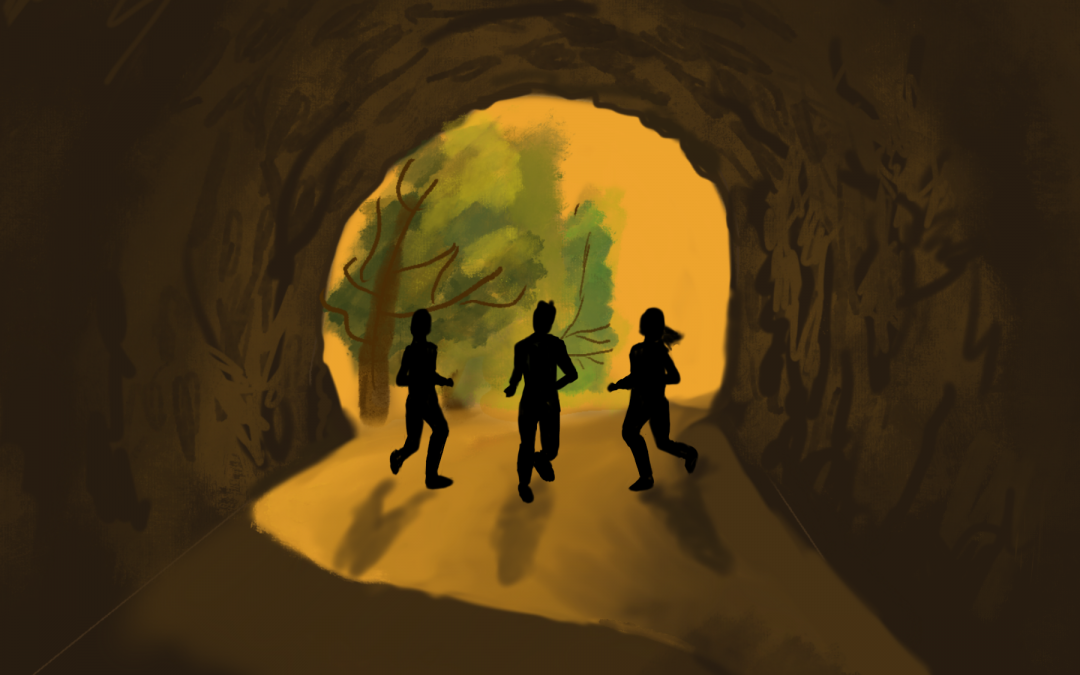
Dec 10, 2020 | COVID-19, Emma Drzala, Opinion
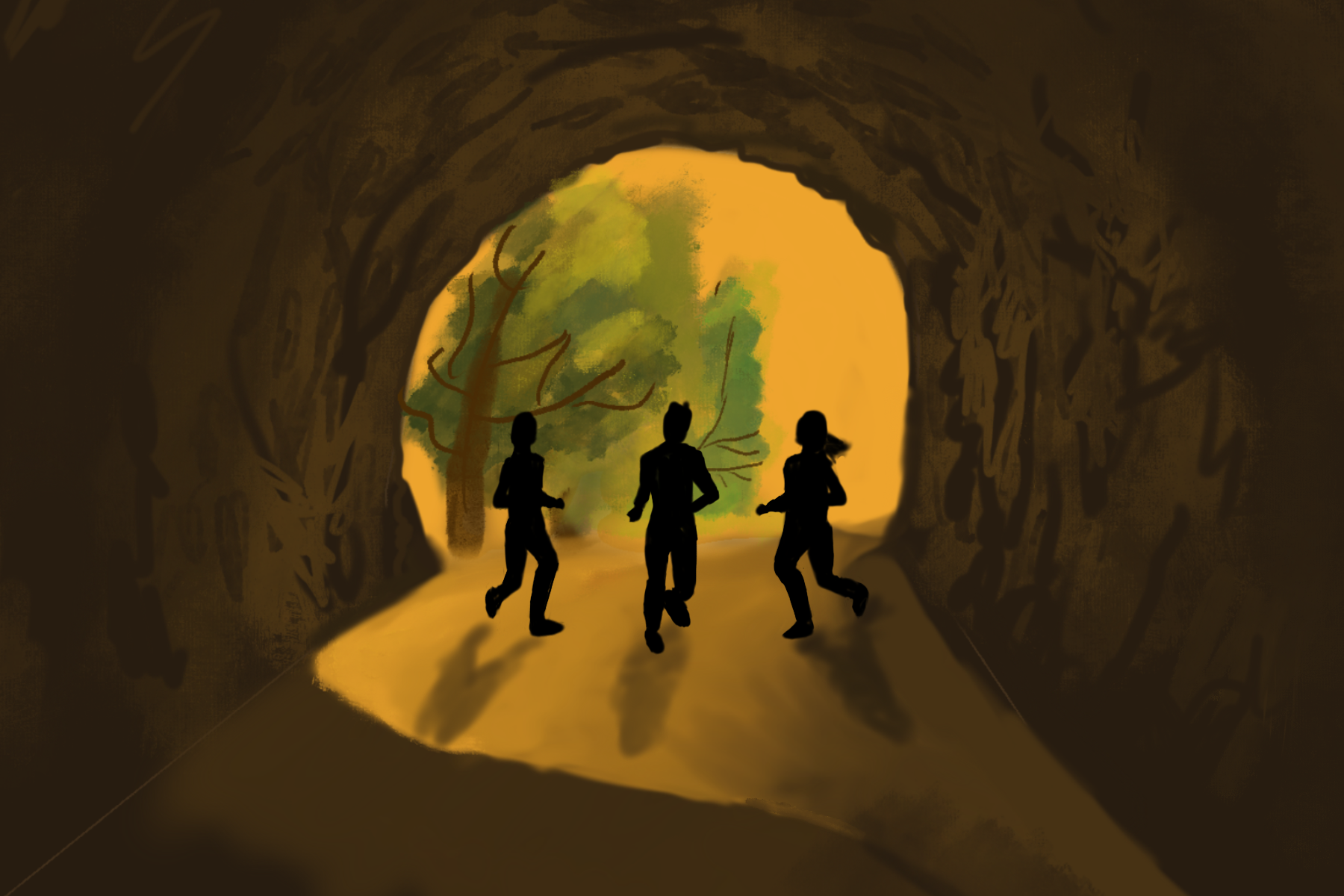
By Emma Drzala (V)
March 13, 2020: a day that will never be forgotten, not only at Pingry but across the nation. On that day, Pingry students were celebrating the news that school would shut down for a couple of weeks following spring break, as a result of the COVID-19 pandemic. Everyone was naïve to the situation around them; nobody could truly predict what was to come. We all thought we would be back in school by April or May, and that the shutdown was just a two-week extension to our break. We all gleefully walked out of school, not knowing that we would not return for half a year.
Two weeks turned into a month. A month became three months. School got out. Summer passed. Still, no end to the pandemic in sight. We came back to school with masks and shields. Still, no sign of the pandemic being over.
Just as we were prepared to give up all hope and accept the fact that the pandemic was our new normal, and that we would forever be confined behind our masks, shields and plexiglass prisons, Pfizer Pharmaceuticals announced a groundbreaking development on November 9th: they had finished developing a vaccine with a 95% effectiveness rate.
After the initial excitement surrounding this positive news died down, my mind bustled with questions. I wondered when the vaccine would be available to the general public, how many people would actually trust its reliability, but most importantly: would life finally, after so many agonizing months of quarantine, return back to normal? Would I finally be able to walk into school without scrambling to finish my pre-screening form? Could I finally eat lunch with my friends without being reprimanded for sitting less than six feet apart?
Although on first thought, the vaccine seemed to be the ultimate end-all for this virus, I realized that this was simply wishful thinking after months in quarantine and away from my friends.
We have to acknowledge that a vaccine may not live up to the hefty expectations the American public has placed on it. There is a high probability that mask-wearing and social distancing measures will still be enforced. During this pandemic, I have longed for a return to school in-person, and the empty and frankly depressing experience of online learning has only cemented this desire even more. The media and our politicians love espousing how the COVID vaccine will prove to be a silver bullet to the entire pandemic and ultimately, this mess of a year. But, let’s be pragmatic here. I do remain optimistic that this vaccine will bring back a degree of normalcy to our lives. Having a portion of the population, especially our most vulnerable citizens (seniors, frontline workers, doctors, etc.), will significantly mitigate the most serious risks of the disease. But with such limited distribution currently, this vaccine is no magic wand. If we take a look at the maladies of history that humanity has successfully defeated, such as polio, measles, and smallpox, nearly 80% of the population had to be vaccinated or develop immunity in order for these diseases to be vanquished. If we are to reach the said 80% of herd immunity, issues with storage and production, along with a sizable population of Americans unwilling to take the vaccine due to its experimental nature, will persist for weeks and months after the vaccine first comes out. These issues certainly hamstring our efforts, leaving a significant portion of the population vulnerable for quite some time.
So as pharmaceutical companies and the FDA begin the long-awaited distribution of vaccines, we must not fall into the trap of believing that we are entirely done with this horrible virus. Yes, there is a light at the end of the tunnel, and it is a miracle of science that American pharmaceutical firms have been able to develop the vaccine in such a short period of time. It is tantalizing to let down our guard at this juncture. But we cannot. We must be aware that until virtually every person in the United States has received the vaccine, COVID and the resulting regulations we have come to loathe this year will still linger. So let’s stick to these rules for just a couple more months and not let our guard waver. We have been forced to endure these rules for a year already, so several weeks will not hurt. We will be back together soon with our friends, under the sun, with no masks on and not socially distanced.
We are almost there. We just need to keep it together for this final sprint. Wear your masks. Spread out. Stay safe. There is finally a light at the end of the tunnel.
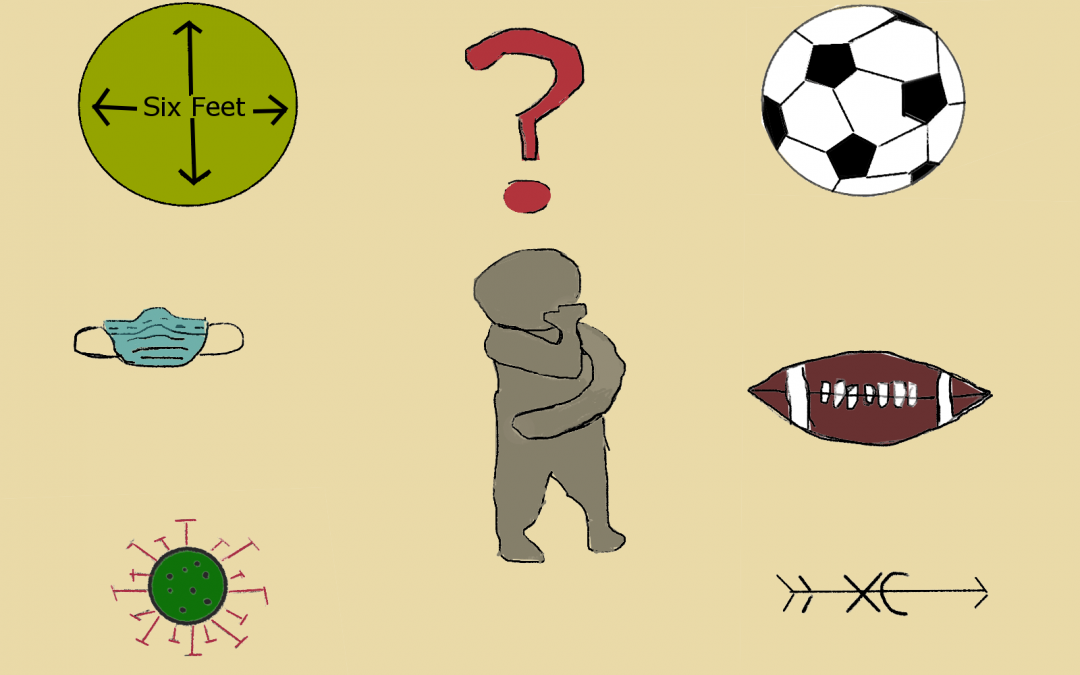
Dec 1, 2020 | Emma Drzala, Opinion
By Emma Drzala (V)
With my face shield in one hand and mask in the other, I stared at the campus in awe on the first day of school. I wondered how Pingry would be able to pull off full days with almost all the students, faculty, and staff in person. Everyone had witnessed the results of COVID-19 and seen how other schools wouldn’t dare to invite their students in for full days. However, as I entered the school, I was able to see how Pingry beat the odds and was capable of staying open. Seating areas were taken away, tents were put up outside, and not a single plexiglass divider was out of place. Countless meetings and emails were set up informing students about the importance of wearing our masks; we learned about every precaution the school was taking to prevent the spread of COVID-19, as Pingry sought to keep their students healthy. Pingry has been finding innovative ways to ensure its students’ safety, including a weekly coronavirus test and required face shields or goggles in hallways. We have been reminded of social distancing, and the repercussions if we don’t follow guidelines; within a few weeks, the freshman tent closed, the junior area was taken away, and the decision to have study halls during flex seems inevitable.
However, even with these extreme rules in place, Pingry is continuing the one thing that will diminish all the rest of the school’s efforts: athletics. As a member of the girl’s tennis team, I have experienced the risk of athletics firsthand: while all coaches are making an effort to enforce social distancing, it doesn’t prevent the contact on the field or court. Groups of kids still run together or touch the same ball, and it makes me question why specific protocols need to be followed during the school day if, from 3:45-5:15, everyone will be together without masks.
For some students, face shields impair learning, but it has been made clear that the whole student body will be punished if we do not wear them. Students are reprimanded for sitting together outside during lunch if they are not far enough apart. Yet, when they run six inches from each other during athletics, there is no consequence. If there are no repercussions for breaking social distancing rules during athletics, these exceptions should also be enforced during the day. So, if all students get tested for coronavirus each week and are allowed to interact during athletics, why are we not allowed to have three people at a table outside?
The problem goes behind just athletics at Pingry, but also outside of school. All athletic teams, including contact sports, continue to participate in games with other schools, who may have less strict COVID guidelines. While I am not making the case for lifted regulations, I believe Pingry needs to reassess its priorities. It can be as simple as keeping athletics within Pingry, instead of risking students’ safety by coming into contact with other schools. As the winter season draws near, Pingry needs to decide whether it wants to put more of an emphasis on sports or in-person learning.
As much as I have loved returning to tennis, and being with the team, these athletics increase the risk of an outbreak; Pingry is indeed playing with fire. Other schools have closed because of positive tests on athletics teams, and it is only a matter of time before Pingry experiences the same.
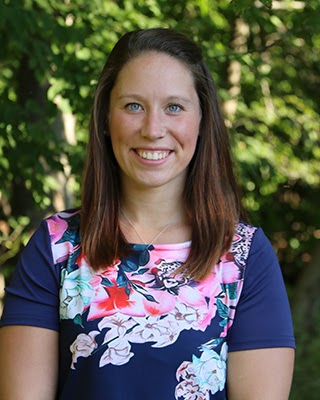
Nov 10, 2020 | Emma Drzala, New Faculty
By Emma Drzala (V) The Pingry community welcomes Ms. Deanna Fischer to the Lower School faculty. Ms. Fischer joins the Lower School to teach fourth grade social studies and reading, as well as serve as an associate teacher and co-teacher to the Lower School’s mathematics specialist, Verna Lange.
Prior to teaching at Pingry, Ms. Fischer was a co-teacher to second grade students at Shongum Elementary School in Randolph, New Jersey, for three years. She has a Bachelor of Arts degree in sociology with human services and is currently working toward getting her master’s degree in P-3 Curriculum and Instruction at Montclair State University.
Ms. Fischer made the decision to join the Pingry community after she babysat two previous Pingry students and witnessed their enthusiasm and love for Pingry. Ms. Fischer heard of the school’s culture and camaraderie and decided to join the community. When she learned of the open position of an associate teacher, she felt as though she would “learn and grow as a teacher in this role.”
When she’s not teaching or studying for her masters, Ms. Fischer enjoys exercising, reading, and exploring nature. The Pingry community looks forward to the start of her journey at Pingry!
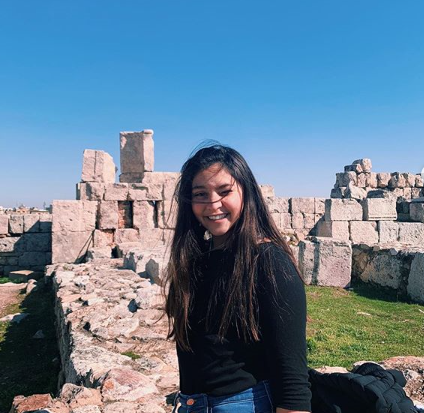
May 4, 2020 | COVID-19 Editorials, Emma Drzala, Front Page News

By Emma Drzala (IV)
After my year abroad in Jordan was cut short, and I took time to reminisce about all the things I learned and experienced, I realized that I have just finished an epic, once-in-a-lifetime journey. I immersed myself in a new culture, I was introduced to new political opinions, and I visited some of the most beautiful places in the world. The moments and experiences I had will forever be among my most treasured memories.
During my time in Jordan, I was fortunate to visit the many cultural and natural treasures of the Middle East, including Petra, The Dead Sea, Wadi Rum, Salt, Amman, and The Citadel. I have experienced all these places in a personal way. I have walked miles through these wonders taking in their magnificent views, the air, and in every step, I would value the world around me. In Wadi Rum, my friends and I stayed at one of the most questionable campgrounds that I have ever been to, but we still played card games and stayed up all night so that we were ready to see the sunrise. That day, I conquered my fear of heights, to an extent, and climbed what seemed like Mt. Everest to watch the sunrise. It was worth it. Within the next couple hours, we went on Jeep tours around the desert, climbed up sand dunes, and smiled the whole way through––well, except for when my friend Humayd lost his phone in one of the largest and steepest dunes I have ever climbed. On the bus ride back to school, we were all passed out and some of us even slept on the bus floor.
The smaller moments of our trips are what I will miss the most. The weekly trip to the mall, the daily laugh from English class, sneaking into the Model UN party, walking into Arabic class everyday with my closest friend Josie, and hearing our teacher say, “صباح خير” (Good Morning!) and “ أى اخبار” (Any news?!).
While the COVID-19 pandemic may have cut my time short, I still have a lifetime of memories, my one-second-a-day montage, and new friends who will always be with me. While I wish I had a proper conclusion to my year, this has in some ways made me further appreciate what I had.
I want to thank King’s Academy for making my year what it was, and even though it ended in an unexpected way, I still have an entire year’s worth of memories to hold onto. I want to especially thank my fellow students; together we went on trips, spent ninety minutes in Arabic everyday, and bonded in ways I have not with anyone else. So, thank you Josie, Isabella, Louisa, Laila, Taher, Humayd, and the person who brought us all together, Ms. Lina Samawi.

Oct 18, 2019 | Emma Drzala, School News
By Emma Drzala (IV)
On the 21st of August, I started a journey that would leave a lasting impact for the rest of my life. As I crossed the threshold to enter the plane, I felt panic and reluctance coursing through my body. I found my seat and felt my eyes getting heavier. The next thing I remember was looking out the window and seeing desert stretch for miles; after a summer of anticipation and an 11 hour flight, I finally landed in Amman, Jordan.
The first days felt relaxed; my mother was there to comfort me and I knew that the rest of my family and friends were only a phone call away. After the third day, I finally walked into King’s Academy with a clear head and an excitement that had never been matched in my life.
The first week felt like I had already been there for a year, and I was convinced that I needed to catch the next flight home. I always managed to find myself alone in my room, wishing I could be in a comfortable environment with a school I knew, friends I knew, and a life I knew.
As the days went on, however, I found myself growing into a routine and my life seemed more manageable. Though, I still longed for my own bed and my dogs running up to me as I got home.
After the second week ended, I felt something new brewing inside me. It was the same excitement I felt when I first saw the campus and I finally started to feel as though I belonged. More kids took an interest in me and teachers were commending my bravery for leaving home and moving somewhere new—the school didn’t seem as daunting anymore.
I was reminded of why I came to the Middle East and I began to revert back to my outgoing, happy self. I had moments where I closed my eyes, and when I opened them, I was hit with the reality that I was in Jordan. My life was a dream that most people think about, but never get the opportunity to do. Even on weekend trips to the mall, I looked outside and savored every view that ran along as the bus was zooming. My friends were pointing out camels and sand dunes, and I was finally beginning to process not being in New Jersey.
Even after a month of being here, I still think about my home and what would be happening if I were in the comforts of Pingry. Though, whenever I find myself drawing closer to that thought, I am always reminded of the golden opportunity I have been given and am reassured that I made the best decision by coming here. The transition was difficult, but already the trips to the Dead Sea, Petra, and Wadi Rum have made all my sacrifices in coming here worth it.
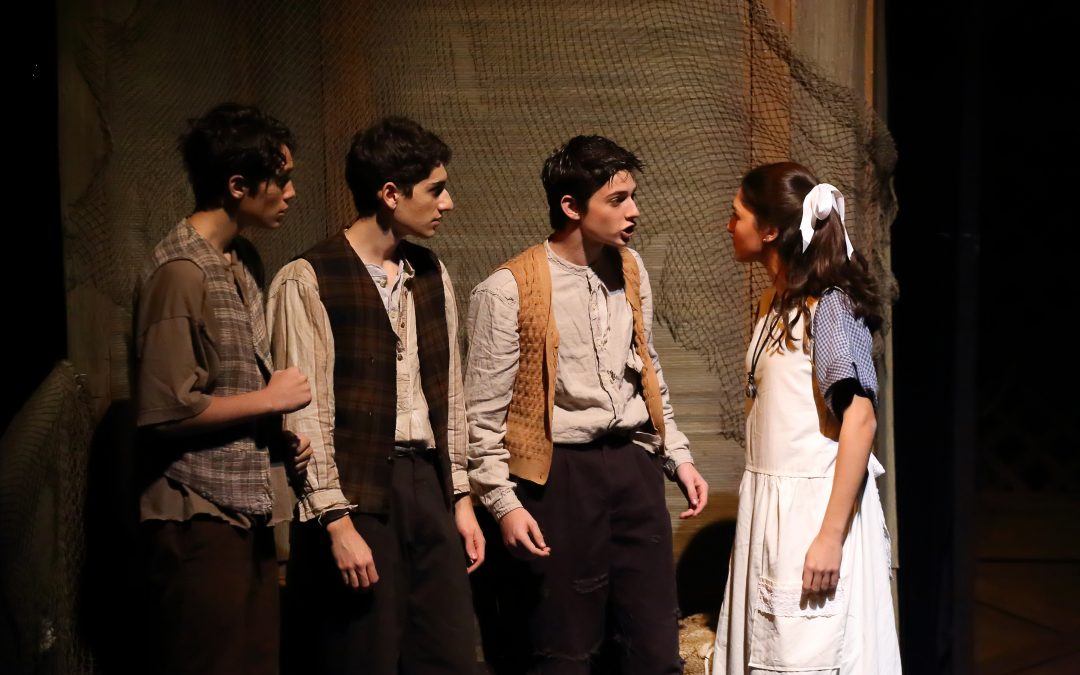
Jan 13, 2019 | Emma Drzala, School News
By Sarah Kloss ’22 and Emma Drzala ’22
Peter and the Starcatcher is a tribute to an orphan boy’s journey to discover his identity as the now well-known Peter Pan. Peter and two other orphans find themselves on a ship known as the Neverland. Soon, a girl named Molly Aster approaches them and tells them about a secret mission that only she can fulfill. This mission leads us through several adventures that greatly influence Peter’s journey to becoming Peter Pan.
The show delivered in many unexpected ways; everything from the costumes to the lighting made the show incredibly professional. Although the cast and crew were only high-schoolers, the story they told transported the audience to another world. We embarked on an adventure with the characters, allowing our minds to reach new limits.
Although the entire cast contributed to the making of this phonomenal play, Jack Lyons (VI) stole the show. He played the Black Stache, an evil pirate with a thirst for power. With his English accent, black mustache, and great acting, he kept the audience members sitting on the edge of their seats. Lyons gave a consistently wonderful performance, and, given his character, it must have been quite a challenge.
Katerina Deliargyris’ (VI) portrayal of Molly the Starcatcher could not have been more spot on, and she enchanted us with her voice at the end of Act I. Molly taught the audience passion, love, and leadership. Deliargyris embodied the character, always impressing us.
Another character who made a great impact on the audience was Prentiss, played by Andrew Cowen (VI). Cowen never failed to add a little humor even in the most serious scenes. From his snarky comments about leadership to his shouts while running through the jungle, he made every scene memorable. Indeed, Cowen was able to switch personas in the blink of an eye. One moment we would see the cocky, arrogant boy who justs wants to be the leader, and another moment we would see the scared, broken orphan who justs wants affection. This ability added depth to Cowen’s character that wouldn’t have been obvious otherwise.
The only actor that performed two lead roles was Lucas Vazquez (VI). Not only did he perform two roles, but his phenomenal acting allowed the audience to tell the two apart. His first role was Bill Slank, the ruthless pirate who takes the trunk meant for the Wasp. Vazquez delivered a classic “bad guy” character in this role. Bill Slank’s anxiety, nervousness, and evil behavior was hilariously portrayed by Vazquez.
Of course, we must not forget the boy himself, Peter Pan. Nicholas Grimaldi (VI) showed the audience the true Peter, and the story behind why he is forever young. Although Grimaldi is a senior, he was able to perfectly capture the innocence of a 13-year-old boy. He took the audience through quite a journey, and they clearly recognized his character development, one that only a true actor could pull off.
The show was incredible, as it unravelled a tale of how Peter Pan the orphan came to be the boy who is forever young. Pingry Drama has pulled off yet another spectacular performance, and we cannot wait to see the next production.










